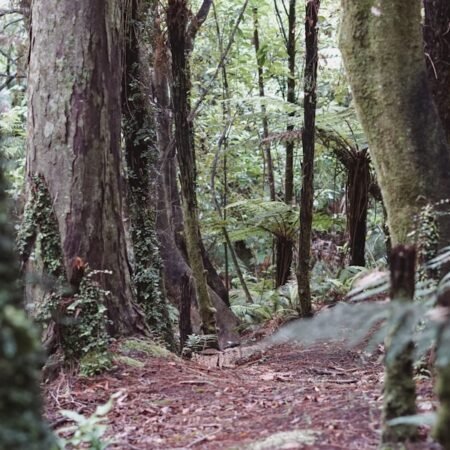When camping, safety is paramount, and having a fire extinguisher on hand is essential. However, it’s crucial to understand that not all fire extinguishers are created equal, and selecting the right one for camping requires knowledge of the different types available. There are five primary categories of fire extinguishers, each designed to combat specific types of fires.
These include water and foam extinguishers, dry powder extinguishers, CO2 extinguishers, wet chemical extinguishers, and clean agent extinguishers. Each type is labeled with a letter indicating the type of fire it is intended to extinguish. For instance, an “A” rating signifies that the extinguisher is suitable for use on fires involving ordinary combustibles such as wood, paper, and cloth, while a “B” rating indicates its effectiveness on flammable liquids like gasoline or oil.
Understanding the different types of fire extinguishers and their applications is vital when selecting the right one for camping. In addition to understanding the types of fire extinguishers, it’s also essential to know how they operate. Water and foam extinguishers function by cooling the fire and smothering it with foam, whereas dry powder extinguishers work by separating the fuel from the oxygen in the fire triangle.
CO2 extinguishers operate by displacing the oxygen in the air, effectively starving the fire of oxygen. Wet chemical extinguishers are specifically designed for use on cooking oil fires, while clean agent extinguishers interrupt the chemical reaction of the fire. Each type of fire extinguisher has its unique method of extinguishing fires, and understanding their operation can help campers make an informed decision when choosing the right one for their camping needs.
Key Takeaways
- Understanding the Different Types of Fire Extinguishers
- The Importance of Choosing the Right Fire Extinguisher for Camping
- Factors to Consider When Selecting a Fire Extinguisher for Camping
- Recommended Fire Extinguisher Types for Different Camping Scenarios
- How to Properly Use a Fire Extinguisher in a Camping Setting
The Importance of Choosing the Right Fire Extinguisher for Camping
When it comes to camping, having the right fire extinguisher on hand can mean the difference between a minor mishap and a full-blown disaster. Whether you’re cooking over an open flame, using a portable stove, or sitting around a campfire, there is always a risk of a fire breaking out. Having a fire extinguisher that is specifically designed for camping can provide peace of mind and ensure that you are prepared to handle any fire-related emergencies that may arise.
The right fire extinguisher can also help prevent small fires from escalating and causing serious damage to property or injury to campers. In addition to providing protection against fires, having a fire extinguisher on hand can also help campers comply with local regulations and campground rules that may require the presence of a fire extinguisher at campsites. Choosing the right fire extinguisher for camping is not only important for safety reasons but also for practicality.
A compact and lightweight fire extinguisher that is easy to transport and use is essential for camping trips where space and weight are limited. Additionally, having a fire extinguisher that is specifically designed for outdoor use can provide added peace of mind, knowing that it is equipped to handle the unique challenges of camping environments. By choosing the right fire extinguisher for camping, campers can ensure that they are prepared to handle any fire-related emergencies that may arise during their outdoor adventures.
Factors to Consider When Selecting a Fire Extinguisher for Camping
When selecting a fire extinguisher for camping, there are several factors to consider to ensure that you choose the right one for your needs. One important factor to consider is the size and weight of the fire extinguisher. Since camping often involves carrying gear over long distances, it’s important to choose a fire extinguisher that is compact and lightweight.
Look for a model that is easy to transport and store in a backpack or vehicle without adding unnecessary bulk or weight. Another factor to consider is the type of fires you are most likely to encounter while camping. For example, if you plan on cooking over an open flame or using a portable stove, you will want a fire extinguisher that is effective on Class A and Class B fires, which involve ordinary combustibles and flammable liquids.
In addition to size and type, it’s also important to consider the ease of use of the fire extinguisher. Look for a model that is simple to operate, with clear instructions and minimal maintenance requirements. A fire extinguisher with a pressure gauge can also be helpful for monitoring its readiness for use.
Finally, consider the cost and availability of the fire extinguisher. Look for a model that fits within your budget and is readily available for purchase at camping supply stores or online retailers. By considering these factors when selecting a fire extinguisher for camping, you can ensure that you choose the right one for your specific needs and camping environment.
Recommended Fire Extinguisher Types for Different Camping Scenarios
| Fire Extinguisher Type | Recommended for Camping |
|---|---|
| Water and Foam | Yes |
| Carbon Dioxide (CO2) | Yes |
| Dry Chemical | Yes |
| Class K (Kitchen) Wet Chemical | No |
When it comes to camping, there are several different scenarios in which a fire extinguisher may be needed. Depending on the activities you plan to engage in while camping, certain types of fire extinguishers may be more suitable than others. For example, if you plan on cooking over an open flame or using a portable stove, a water and foam extinguisher may be the best option, as it is effective on Class A fires involving ordinary combustibles such as wood or paper.
If you anticipate encountering flammable liquids such as gasoline or oil while camping, a dry powder extinguisher with a Class B rating may be more appropriate. For campers who plan on using cooking oils or fats, a wet chemical extinguisher designed specifically for Class K fires may be recommended. In addition to considering the types of fires you are most likely to encounter while camping, it’s also important to think about the size and weight of the fire extinguisher.
For backpackers and hikers who need to minimize weight and space, a compact and lightweight fire extinguisher may be the best option. For car campers or RV enthusiasts who have more storage space available, a larger fire extinguisher with a higher capacity may be more suitable. By considering the specific scenarios in which a fire extinguisher may be needed while camping, campers can choose the right type and size for their individual needs.
How to Properly Use a Fire Extinguisher in a Camping Setting
Knowing how to properly use a fire extinguisher is just as important as having one on hand while camping. In the event of a fire-related emergency, being able to quickly and effectively operate a fire extinguisher can make all the difference in preventing serious damage or injury. The acronym “PASS” is commonly used to remember the steps for using a fire extinguisher: Pull the pin, Aim at the base of the fire, Squeeze the handle, and Sweep from side to side.
It’s important to aim at the base of the fire rather than at the flames themselves in order to smother it at its source. Before attempting to use a fire extinguisher in a camping setting, it’s crucial to assess whether it is safe to do so. If the fire is large or spreading rapidly, it’s best to evacuate the area and call emergency services rather than attempting to put it out yourself.
Additionally, it’s important to ensure that everyone in your camping party knows how to use the fire extinguisher in case of an emergency. By familiarizing yourself with how to properly use a fire extinguisher and sharing this knowledge with others in your group, you can help ensure that everyone is prepared to respond effectively in the event of a fire-related emergency while camping.
Tips for Maintaining and Storing Fire Extinguishers for Camping
Proper maintenance and storage of fire extinguishers are essential for ensuring their effectiveness when needed. When storing a fire extinguisher for camping, it’s important to keep it in a location where it is easily accessible in case of an emergency. This may include storing it in a designated compartment in your vehicle or near your campsite where it can be quickly retrieved if needed.
It’s also important to protect the fire extinguisher from extreme temperatures and direct sunlight, as these conditions can affect its performance over time. Regular maintenance of fire extinguishers is also crucial for ensuring their reliability when needed. This includes checking the pressure gauge periodically to ensure that it is within the recommended range and inspecting the exterior of the extinguisher for any signs of damage or corrosion.
It’s also important to have your fire extinguisher professionally inspected and serviced on a regular basis to ensure that it remains in good working condition. By following these tips for maintaining and storing fire extinguishers for camping, you can help ensure that they are ready for use when needed.
Where to Purchase the Recommended Fire Extinguisher for Camping
When it comes to purchasing a fire extinguisher for camping, there are several options available to campers. Many outdoor retailers and camping supply stores carry a variety of fire extinguishers designed specifically for outdoor use. These stores often have knowledgeable staff who can help campers select the right type and size of fire extinguisher for their specific needs.
In addition to brick-and-mortar stores, there are also numerous online retailers that offer a wide selection of fire extinguishers for camping. Before making a purchase, it’s important to research different brands and models of fire extinguishers to find one that meets your specific needs and budget. Look for models that are compact and lightweight, easy to use, and effective on the types of fires you are most likely to encounter while camping.
It’s also important to consider factors such as cost, availability, and customer reviews when selecting a fire extinguisher for camping. By taking the time to research different options and compare features, campers can ensure that they choose the right fire extinguisher for their outdoor adventures. In conclusion, choosing the right fire extinguisher for camping is essential for ensuring safety and preparedness during outdoor adventures.
By understanding the different types of fire extinguishers available and their uses, campers can make informed decisions when selecting one for their specific needs. Factors such as size, type, ease of use, and cost should be considered when choosing a fire extinguisher for camping. It’s also important to know how to properly use a fire extinguisher in a camping setting and how to maintain and store it effectively.
By following these guidelines and tips, campers can ensure that they are prepared to handle any fire-related emergencies that may arise while enjoying the great outdoors.
FAQs
What type of fire extinguisher is recommended for camping?
The recommended type of fire extinguisher for camping is a multi-purpose dry chemical extinguisher that is rated for Class A, B, and C fires.
What are Class A, B, and C fires?
Class A fires involve ordinary combustible materials such as wood, paper, and cloth. Class B fires involve flammable liquids and gases. Class C fires involve energized electrical equipment.
Why is a multi-purpose dry chemical extinguisher recommended for camping?
A multi-purpose dry chemical extinguisher is recommended for camping because it can effectively extinguish a variety of fires that may occur in outdoor settings, including those involving wood, flammable liquids, and energized electrical equipment.
Are there any other types of fire extinguishers that can be used for camping?
While a multi-purpose dry chemical extinguisher is recommended for camping, a water mist extinguisher or a CO2 extinguisher can also be effective for certain types of fires that may occur in outdoor settings. However, it is important to ensure that the extinguisher is rated for the specific types of fires that are likely to occur while camping.













